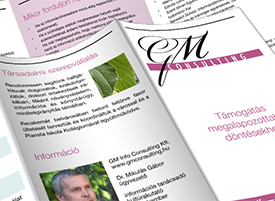Increasing the safety of decision-making – the work of Information Consultant
Conference presentation and publication. In: p. 227-237., VIII. Magyar (Jubileumi) Jövőkutatási Konferencia (Budapest, 2018. november 14.15.) Budapest, 2018. – 423 p.
Abstract:
Although decision-makers often feel incomplete the information available, they often deal with the processing of relevant information too little. Their goal in decision-making process can be action oriented or knowledge-enhancing use.
An Information Consultant (information broker), specialized in information searching and processing looks for and sells information for business and technology problem solving, decision-making. Its projects are typically unique and fulfil them with telephone interviews, internet and database search and data analysis. The clients find advantageous that the consultant searches in several kind of sources, involving external point of view with quick, professional skills.
The Information Consultant does not make a decision for a customer, but obtains contact information, company and marketing information, complies business requests such as, questing a domestic business partner for a foreign company, analyzing industry, manufacturing features, collecting gossip, identifying a specific market etc. Depending on the nature of the project it may stand in with journalists, intelligence and industry specialists.
During the reference interview the details are discussed such as the customers’s demand, the purpose of the information, whether the information searched is original or generic, whether trend outline or weak signal searching is the target, etc. In some cases there is need to reconsider the tools and resources reflecting the customer’s goals, and the Information Consultant suggests an altered strategy. Following the consultation, the Information Consultant decides whether the assignment can be fulfilled regarding the ethical and capacity aspect. After accepting the information request – as the delivery has an intangible characteristic – the parties outline precisely the content and parameters of the information to be delivered, giving the slightest chance of possible misunderstandings.
The way of information acquiring is iterative. It is typical that the Consultant reaches the human resources of the information from open or non-open source of the Internet, where the most precious, not yet written information is available typically via telephone interview or electronic mail.
During the controlled and documented information search, the obtained information is organized according to the structure requested by the client. The report does not include the decision itself, only its input data. As the Information Consultant gets to know the claim of its client, the Consultant may upsell value added services.
In the case of mutual satisfaction of the parties, project work may become a continuous assignment or series of projects.





